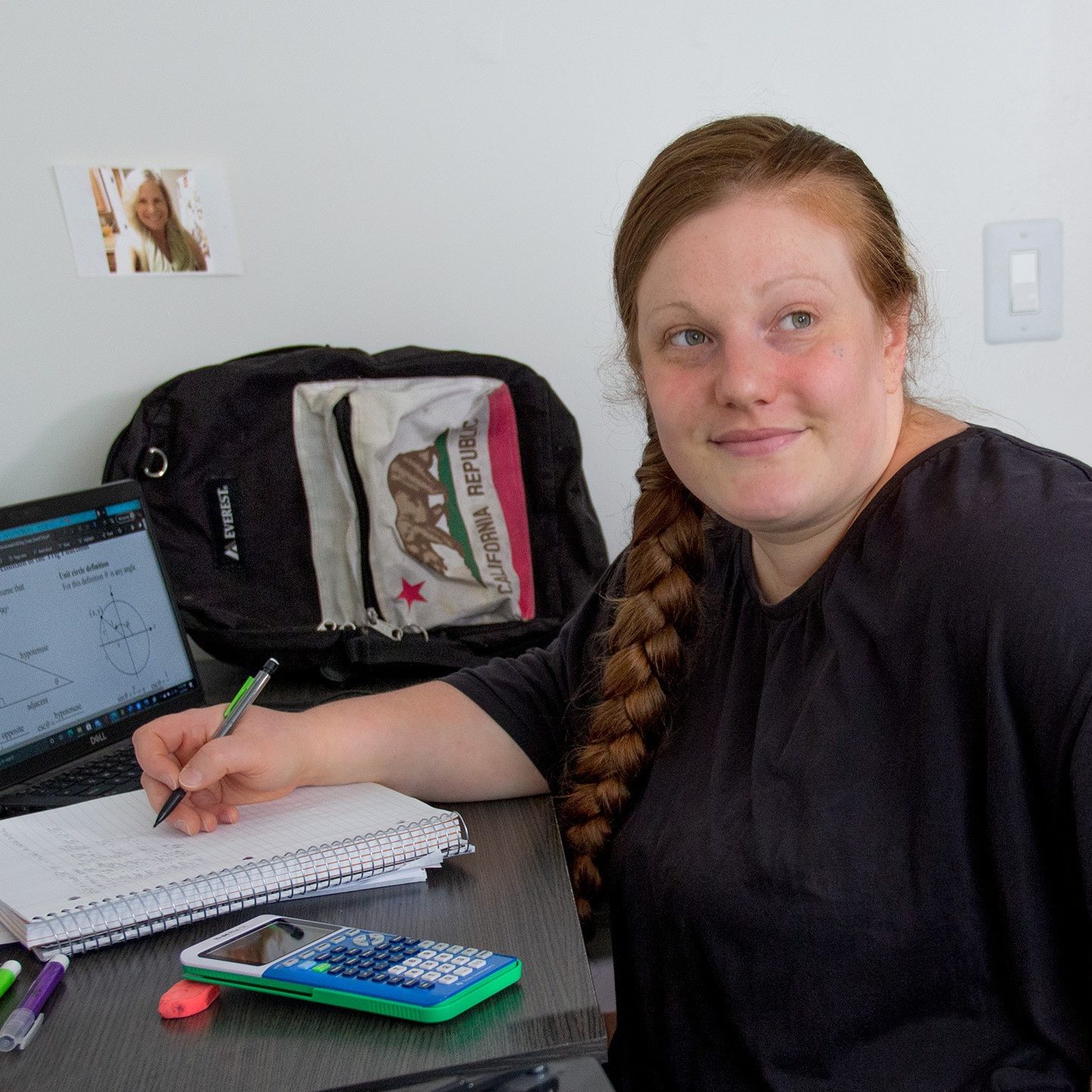“My upbringing was pretty normal,” says Beit T’Shuvah resident and former meth and heroin addict Bonnie R. “I was the unusual one. I had become somewhat of an outcast by the time I was in middle school. I was on the chubby side, and the other kids were pretty mean. I started to feel like I didn’t belong at a very young age. The people that were different all hung out together. They accepted me for who I was, and I didn’t have to put on a facade to be part of the group,” she recounts.
“The first time I smoked pot, it was out of a can with one of my friends. I liked it a lot, and I immediately wanted to be the one that had what the kids wanted. I knew I wanted to sell weed right away,” Bonnie recalls. She didn’t know it at the time, but she was about to take her first step down a long road of criminal activity.
“I got caught the first time I tried to sell weed. After that, I was actually kind of proud of it. I even carved my name into one of the walls at the police station,” she says. However, it wasn’t long before Bonnie found herself in more trouble after assaulting one of her peers. “I was protecting my best friend from another student, but it didn’t matter. I was kicked out of middle school anyway,” Bonnie says.
She was introduced to cocaine that year, and by winter, she found herself in Utah at a residential treatment program for minors. “Although it was a wilderness program, which I liked, ninety percent of it was inside, and I was miserable,” Bonnie says. Nevertheless, she stuck with it and managed to stay out of trouble there and complete the curriculum.
Bonnie returned home following the program and graduated high school early by passing a high school proficiency exam. But things hadn’t gotten any easier for her. “I was in a relationship that was abusive around that time and had started isolating myself from my friends. I was once again selling drugs and dealing with a more criminal element,” she says. She ended up having a nervous breakdown. She could barely get out of bed most days and started to get further and further into drugs. “Next, I caught a grand theft auto charge by joy-riding in my mother’s car. I also picked up a charge of possession of paraphernalia during the same arrest,” she says.
Having had enough, her mother threw Bonnie out of the house, leaving her bouncing from couch to couch. When she had finally run out of options, Bonnie found herself sleeping outside. Finally, she was able to get in touch with her father, and he said he would help. Her father, a cantor, had heard about BTS, so he picked her up and brought her here.
At Beit T’Shuvah, Bonnie found a good job and felt confident that she could leave and be successful. But she immediately picked up weed again, thinking she could handle it. That relapse also led back to crystal meth. Despite using again, Bonnie managed to get back into a community college in the Bay Area. Unfortunately, her time there was short-lived due to her frequent visits to the “Tenderloin,” an area of downtown San Francisco known for its drug dealing and other illicit activities. Unable to overcome her addictions, Bonnie got kicked out of the house once again, and she was back on the streets.
“I got burglary charges and stole cars. I was even involved in a few home invasions. At one point, I was so thirsty living on the streets; I broke into a home just to get something to drink. That was the start of even more home invasions,” she painfully recalls.
Bonnie caught another case and was sentenced to two years in jail, and while there, she once again applied to BTS. It took a year before she was granted permission to finish out the rest of her sentence here. “I was so relieved to be here, and I have since gotten off parole and returned to school,” Bonnie cheerfully reports. “I’m getting my bachelor’s in computer science soon!”
Bonnie has also completed all twelve steps in Criminals and Gang Members Anonymous (CGA) and has reconciled with her mom, dad, and the rest of her family. “Having a good relationship with my mom and dad is super important to me. At BTS, I’ve found the solace of community and friendships I’ve been looking for since I was a little girl. I feel safe here, and I know the people here really do care about me,” she says. Bonnie credits all the rabbis of Beit T’Shuvah and staff members Zac, Jessica, and Earl with giving her the strength and guidance to succeed in her recovery.
If you were moved by the story above, please consider making a donation to Beit T’Shuvah
today to help ensure the life-saving work we do continues. Every dollar makes a difference. You
can make a donation by going to https://beittshuvah.org/support/donate/ or emailing our
development department at development@beittshuvah.org
